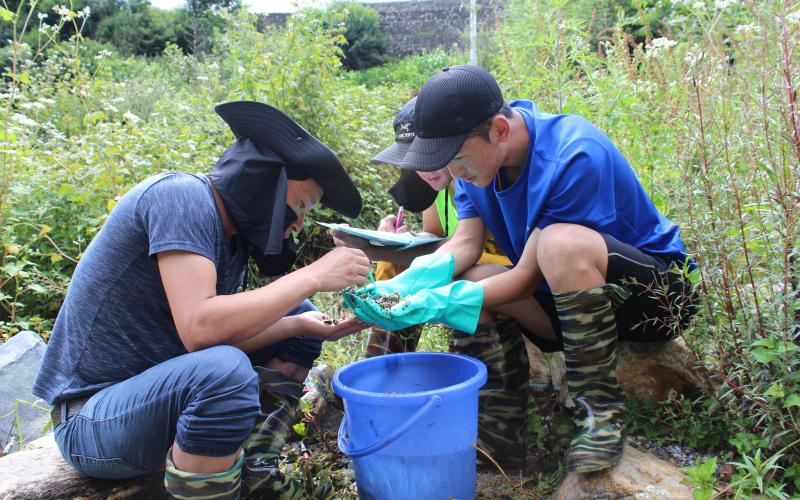Kinley Dorji
This project will evaluate and document the composition and diversity of macro invertebrate communities in the six main headstreams of Wangchhu River in order to assess the fresh water quality and study the impact of different anthropogenic activities to the freshwater ecosystem. It will establish conservation management and create conservation awareness awakening communal responsibility towards protection of our natural resources.

Surface fresh water makes up to approximately 0.3% of the world’s water covering about 1.78% of the earth’s surface, yet this minute fraction of global water supports at least 12% of animal and 40% of fish species out of estimated 8.7 million total species on earth. Invertebrates make up to 80% of all species in the world and plays very crucial roles in both aquatic and terrestrial ecosystem providing enormous benefit. In the perspective of freshwater invertebrate, majority of world’s estimated 126,000 freshwater species are invertebrates. Regardless of its abundance and the vast array of key roles played in different ecosystems, until recently, it was a world least concerned by human. There was very little attempts of comprehensive studies on their conservation status and importance, by the virtue of which, an estimate of 12,000 different invertebrates around the world are already at the risk of extinction. And the causes of this environmental catastrophe are no other than different anthropogenic activities.
In Bhutan, where freshwater resource is abundant and freshwater biodiversity is least explored, anthropogenic activities like rapid urbanization and other developments fuelled by economic growth has already undermined the freshwater ecological functions. It is vividly visible in the growing cities like Thimphu and Phuntsholing.
In this face, this project evaluates and documents the composition and diversity of macro invertebrate communities in the six main headstreams of Wangchhu River which pass through Thimphu city. It is not only in responds to the need of conservation of invertebrate diversity but also to study the freshwater status for establishing conservation management in the interest of environment, social and economic aspects against rapid urbanization and changing global climate. Concomitantly the project also has special accent to education and conservation awareness to the mass in order to awaken individual responsibility and communal ownership of our natural resources.